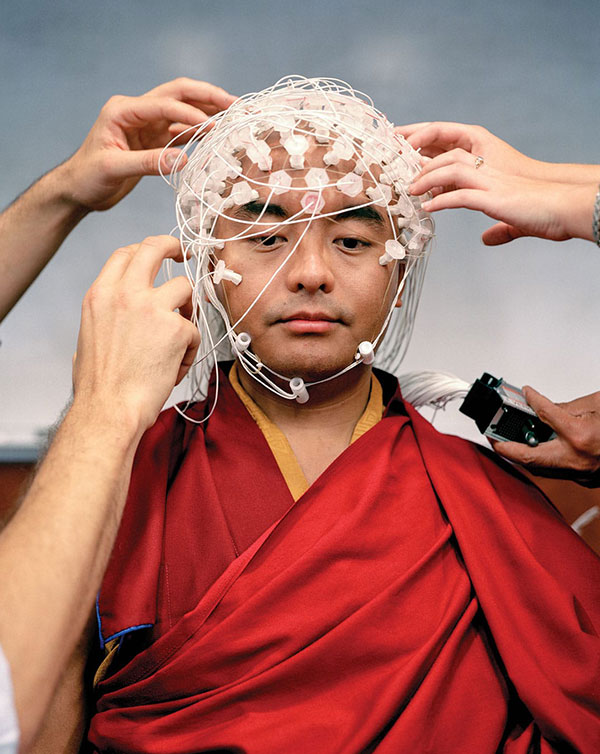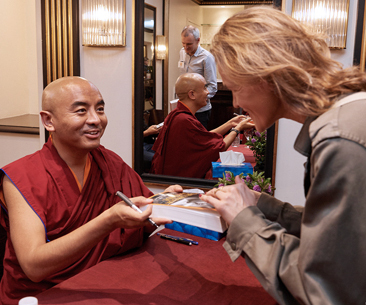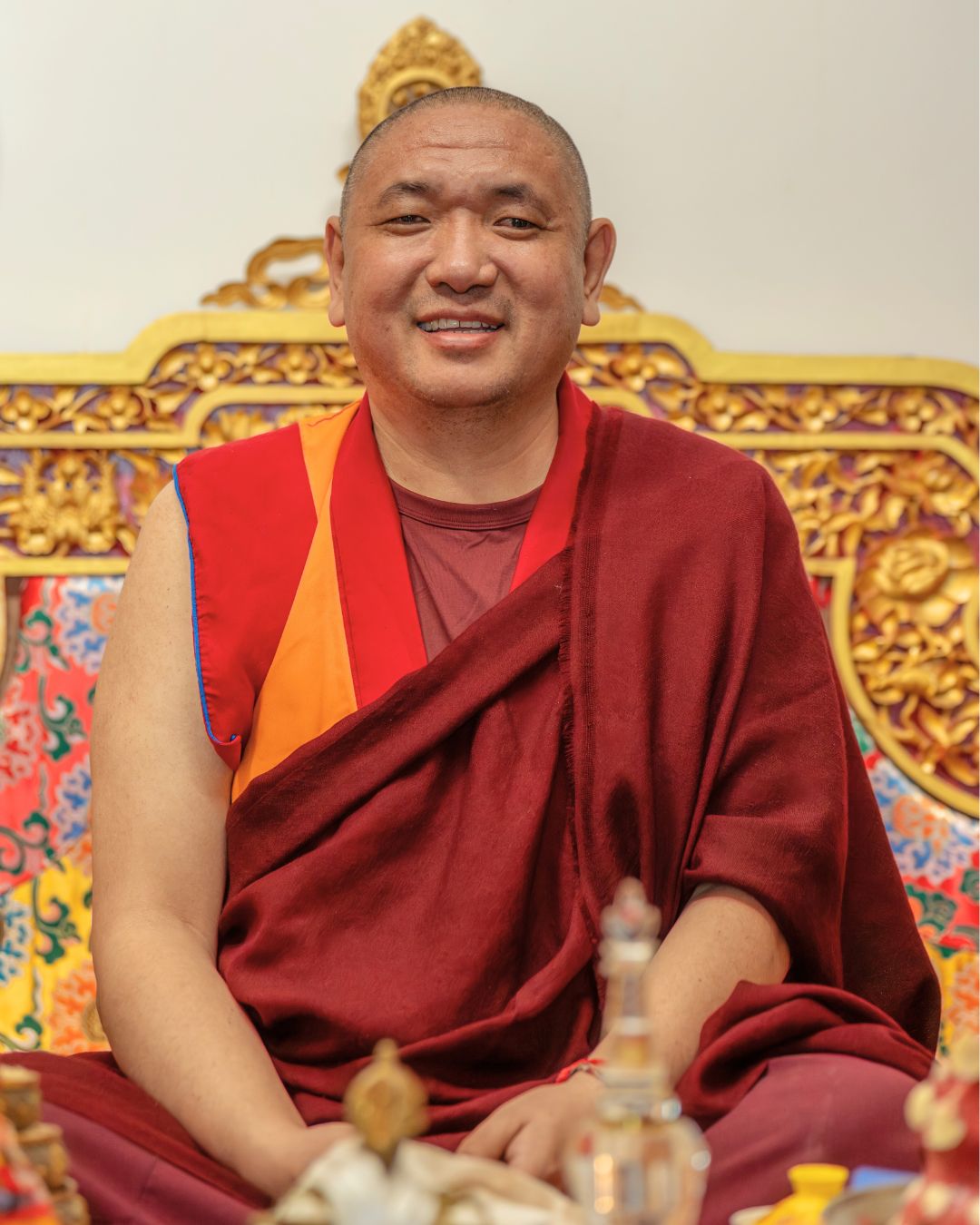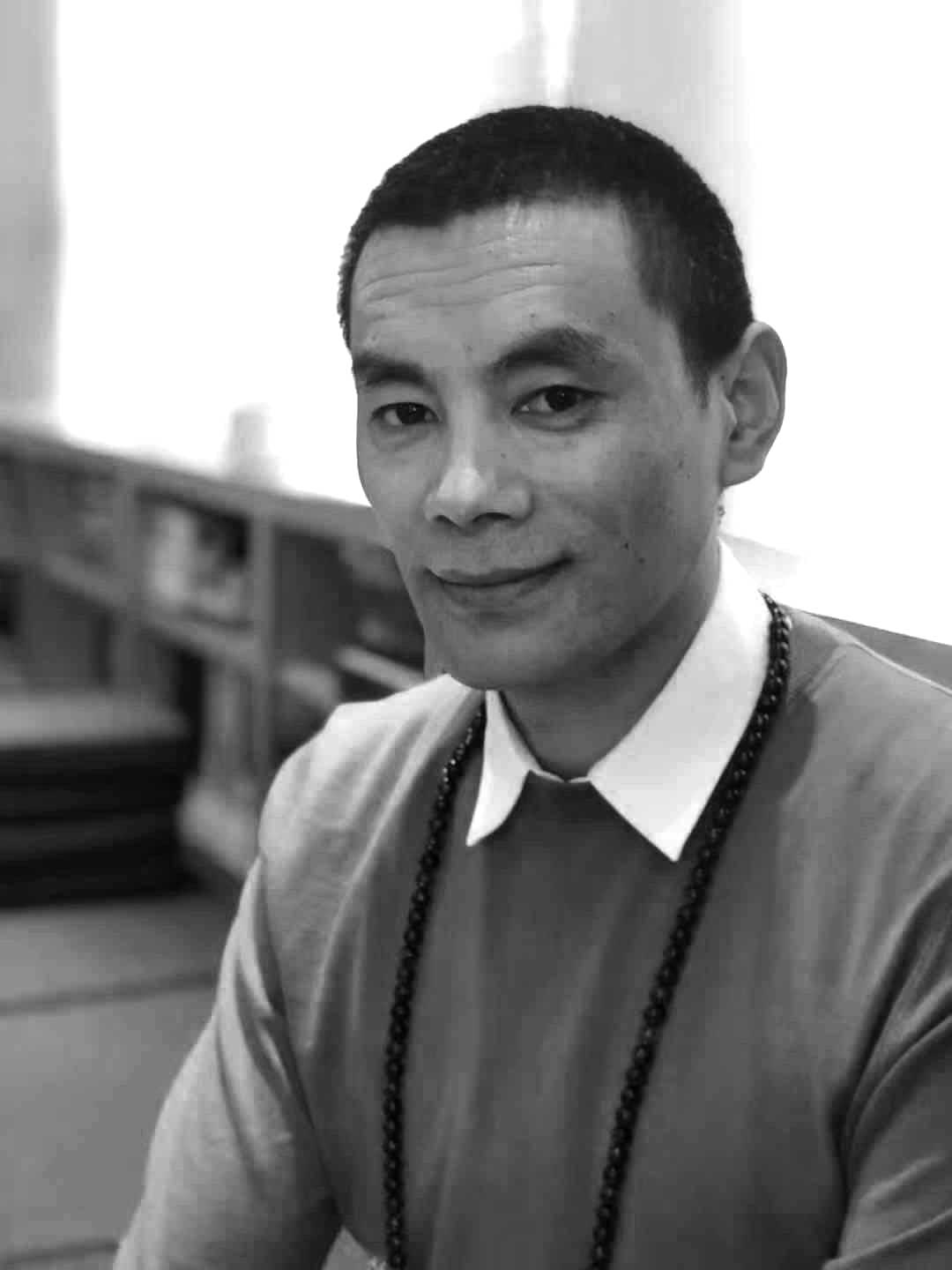Date/Time:
This event takes place June 17-20, 2022.
Registration
Registration will close 1 hour in advance of the event. Full refunds will be given for cancellation requests up to 1 hour in advance of the event.
Who can attend this event?
This program is open to everyone.
Translation
Translation from English will be offered in Chinese, French, German, Portuguese, Russian, and Spanish.
"Ultimate reality cannot be apprehended by concepts. We can, however, in an experiential way that transcends the ordinary conceptual mind, achieve a genuine understanding of reality as being the union of appearances and emptiness." — Shechen Rabjam Rinpoche
At the heart of the bodhisattva path is wisdom that realizes emptiness. This wisdom is nondual, transcending the habitual patterns of identifying the world or oneself as inherently real and solid. During this retreat, Mingyur Rinpoche will present core elements from Shantideva’s famous 9th chapter of The Way of the Bodhisattva, which focuses on wisdom — the realization of emptiness. This will include practices of both analytical and resting meditation, highlighting the various ways in which we can give rise to this wisdom.
WHY SHOULD I ATTEND?
Do you want to go beyond a superficial understanding of wisdom and actually experience what these teachings mean? Have you read Shantideva’s The Way of the Bodhisattva and wondered how to apply the profound meaning in your daily life? If so, this retreat is for you! Mingyur Rinpoche will highlight profound ways of relating to your own mind as well as the world around you.
WHAT WILL I LEARN?
During this retreat, you will:
- learn transformative ways for viewing yourself and the world as they truly are
- receive instructions on critical elements of the bodhisattva path
- begin to connect with a transcendent wisdom that is intrinsic to who you are
- practice analytical and resting styles of meditation
WHAT IS INCLUDED IN THIS PROGRAM?
- Teachings and Q&A with Mingyur Rinpoche
- Teaching sessions with Tergar Lamas Khenpo Kunga and Lama Trinley
- Group practice and Q&A with Tergar guides
- Opportunities for self-guided practice
- Discussion groups
About Mind of a Bodhisattva Retreat with Mingyur Rinpoche
Thank you for your interest
This event happened on June 17. If you attended this event, you can access your resources by logging in.
We invite you to take a look at more events with Mingyur Rinpoche and Tergar Instructors.
About Mingyur Rinpoche

In his approach to teaching meditation, Mingyur Rinpoche integrates traditional Buddhist practice and philosophy with the current scientific understanding of the mind and mental health – making the practice of meditation relevant and accessible to students around the world.
Mingyur Rinpoche is a world-renowned meditation teacher with personal experience of anxiety and panic attacks, which he suffered from throughout his childhood and into his teenage years, when he learned to transform his panic through meditation. Born in Nepal in 1975, Mingyur Rinpoche began to study meditation as a young boy with his father, Tulku Urgyen Rinpoche, himself a well-respected Buddhist teacher. As a child he became interested in contemporary science through conversations with scientists who were visiting his father, and as he grew older he began to collaborate with neuroscientists and psychologists, including Richard Davidson and Antoine Lutz at the University of Wisconsin, on research projects that study the effects of meditation on the brain and the mind.

Mingyur Rinpoche’s first book, The Joy of Living: Unlocking the Secret and Science of Happiness, debuted on the New York Times bestseller list and has been translated into over twenty languages. His second book, Joyful Wisdom: Embracing Change and Finding Freedom, explores how difficult emotions and challenging life situations can be used as stepping stones to discover joy and freedom. In his most recent book, In Love with the World, Mingyur Rinpoche shares how his meditation practice sustained him when he left his monastery to wander through India and the powerfully transformative insights he gained from the near-death experience he had at the beginning of his journey. Mingyur Rinpoche recently appeared in the Netflix series The Mind, Explained, in an episode about the benefits of mindfulness.
As the head of the Tergar Meditation Community, Mingyur Rinpoche supports groups of students in more than thirty countries, leading workshops around the world for new and returning students every year.
About Khenpo Kunga

Khenpo Kunga is a Senior Tergar Lama. He became a monk at a young age and began his education at Tergar monastery, where he studied the rituals, prayers, and other traditional practices of the Tibetan Buddhist tradition. At fifteen, he entered an extended meditation retreat and spent three years mastering the profound contemplative practices of the Kagyü lineage.
Following this period of intense meditation practice, he entered the renowned Dzongsar monastic college near Dharamsala in Northwest India. After studying there for eleven years and receiving his Khenpo degree (roughly equivalent to a PhD), he taught at Dzongsar college for three additional years. Khenpo Kunga’s primary teacher is Yongey Mingyur Rinpoche, though he has studied with many other revered masters as well.
In recent years, Khenpo Kunga has taught in Asia, Europe, and the United States as one of the main teachers for the worldwide network of Tergar monasteries, meditation centers, and meditation groups.
About Lama Trinley

Lama Trinley has been the resident teacher at the Tergar Mingjue Phoenix Center since November, 2007. Lama Trinley began his education at Tergar Monastery, where he studied the rituals, prayers, and other traditional practices of the Tibetan Buddhist tradition. He entered the traditional three-year retreat when he was seventeen years old, after which he spent six years training in the monastic college of Tergar Monastery, where he taught for three years as assistant professor. His command of English and his humble and gentle demeanor make him easily accessible to newcomers and experienced meditators alike.
 EN
EN





